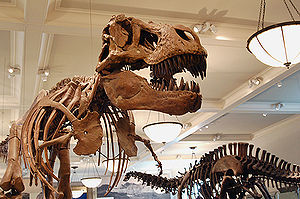Farhad Manjoo over at Slate really kicked up a storm in a tea cup 2 weeks ago (wow, that was a really bad mixed metaphor) with his Kill Your RSS Reader post.
Mashable covered it and did a poll of their users use of RSS. I covered the Mashable post. WebWorkerDaily included my post in their post about RSS and social media.
I have no doubt Farhad’s post generated hundreds of other reactions. As I went back and reread Farhad’s post and got beyond the obvious link baiting headline I realized that:
A- He has some useful advice about navigating news sites.
B- His post represents 1/3 of the new madia consumption equation.
What are the 3 parts of modern day media consumption?
- RSS Readers
- Social Networks
- Aggregation Sites
Drowning in RSS
Farhad’s problem was that RSS became overwhelming and he couldn’t keep up. Former HP colleague Eric Herberholz mentioned in a comment to my post how he likes RSS just has a hard time managing it.
The problem is that people treat their RSS feeds like email. RSS and blogs are NOT email. You do not have to read them all. RSS feeds arfe like a news paper.
For those of you who read the paper everyday, do you read the whole thing? There are some people who say they read the *whole* paper “front to back”. These people are liars. No one reads every word of any newspaper. I doubt the editors of the papers even do. People really just scan the articles that interest them as they go. RSS is no different. Scan, read what strikes your interest and then move on.
Social Networks and Discovery
One of the arguments old media defenders use against a blog only media diet is there is no chance for discovery. You only consume media from a narrow niche and are not “surprised” by the discovery of an unexpected story. These people argue that physical papers and magazines provide this better than blogs. For once, I mostly agree with them.
Discovery is the fiber in a healthy media diet.
I follow 300 blogs. I rarely see interesting yet “off topic” items. I read 200 posts a day just to stay on top of my industry. Not to discover new things.
While blogs don’t provide discovery, Twitter is better at providing discovery than the newspaper or magazines. Other than talking about food conecting with interesting people, link sharing is the most important Twitter activity. The third most important activity is retweeting (RT).
This is why the latest wave in Twitter apps are link aggregation sites. The current leader and best implementaion of this so far is Tweetmeme. See the bubble and retweet button at the bottom of this post. Click it. It’ll send a ‘RT @tacanderson’ for this post to twitter. The most popular RT’s surface to the top of Tweetmeme. The obvious analogy is that it’s the Digg of RT’s, just without the snarky commentary.
This is how I discover great ‘off topic’ content. FriendFeed would be a better tool for discovery if it wasn’t too much ‘off topic’ content. I realize I could eliminate most of this with filters but that’s too much work.
Aggregation and the Portal Page
So going back to Farhad, he had some great points and suggestions about how to navigate news sites. I’m pretty good with using keyboard shortcuts but he totally schooled me with his mouse tips.
If you think of the wheel only as a tool to scroll with, dear friend, you’re missing out; the middle mouse button does so much more. For example, it’s the best way to open a link in a background tab. You can use the same button to quickly close unwanted tabs, too—click and release a tab you just opened, and voila, it disappears. In Firefox, the middle button has one extra power: Click an empty space in the tab bar and you’ll open up the last tab you closed, which is a godsend if you accidentally sent away something important.
Very cool.
I am going to create a bit of heresy here with my next statement: There is some news that is better consumed on page. There I said it. Many news sites and portal pages have a great UI that lends itself to on page consumption. Most ruin this with pop-ups and flash ads that roam all over the page. There are also several mega aggregators that don’t allow for RSS consumption and even if they did they would flood your RSS reader with nothing else. I like the WatrCoolr sites. Techmeme is a long time geek favorite. Alltop and up-and-comers PostRank also provide better onsite consumption.
(I also find it ironic that newspapers are really just news aggregators anymore. What percentage of news in your average paper was actually written by the paper? Now take out press releases that are repurposed exactly or with minimal re-writing.)
If you enjoyed this post, make sure you subscribe to my RSS feed!






